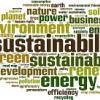News
Displaying Results 101 - 125 of 141
Over the last two weeks at COP 26, governments, the private sector and a wide range of actors have unveiled plans for climate action in crucial areas ranging from methane, to forests, finance, fashion, transport and far beyond. As US Special Presidential Envoy for Climate John Kerry put it in our…
This year, the UNECE region has seen devastating impacts of climate change and multiple natural disasters, such as the floods in Belgium, the Netherlands and Germany. Disasters caused by natural hazards, on the rise due to climate change, can also trigger technological accidents.
On today’s…
The progress of the 2030 Agenda for Sustainable development hinges on the availability of natural resources and a transition to sustainable means of their production and use. Minerals and petroleum provide the raw materials needed for the economy. While a low-carbon economy requires a wide variety …
Gender mainstreaming means integrating gender equality perspective at all stages and levels of policies, programmes and projects. All policy levels are equally important, as gender mainstreaming has to be applied throughout the whole society. Mainstreaming gender at local level is crucial since at…
Transboundary waters are a global common good crucial for human life, which require concerted management and protection. The ninth session of the Meeting of the Parties (MOP 9) to the Convention on the Protection and Use of Transboundary Watercourses and International Lakes (Water Convention) has…
UNECE is making a call to the World of Sports, including sports events’ organizers, committees, athletes, sportswear brands, producers and consumers to help advance circularity and sustainability in sports clothing.
The Forests4Fashion Sports Challenge aims to encourage the reuse of sportswear…
Policymakers looking for innovative solutions to global problems are increasingly recognizing that the answers have been around for a long time even before the earth got populated by humans. Trees can help achieve pressing global objectives for sustainable development, biodiversity conservation,…
An exhibition of urban sketches by Architect Norman Foster is opening today at the Palais des Nations on the occasion of the UNECE Ministerial Meeting on Urban Development, Housing and Land Management (6-8 October). The sketches present visions of city planning that incorporate concepts of…
Realization of the Sustainable Development Goals will require massive inputs of low-carbon energy, critical raw materials, and other natural resources, including land and water. These demands are aggravated by rapid urbanization of the world’s population, which stresses grid-based power,…
The commitment to keep global warming to well below 2°C compared to pre-industrial levels requires decarbonization in all economic sectors and reduction of emissions of all potent greenhouse gases. In practice, this means modernization of the energy sector with a focus on phasing out unabated coal…
Sustainable development depends on optimal and responsible production and use of natural resources. Today's resource patterns are unsustainable in terms of their environmental and societal impact and ensuring resource availability now and in the future. Developments in sustainable resource…
In a joint statement, the Executive Secretaries of the United Nations Regional Commissions have called for enhanced regional cooperation to develop nature-based and technological solutions for capturing CO2 emissions from the atmosphere and ensuring its long-term storage. Version française
This…
The COVID-19 pandemic has exposed the world’s fragilities, including the weaknesses of our food systems which exacerbate hunger, obesity, poverty, political instabilities and economic crises. To overcome common and regional challenges, the five UN regional commissions have been working jointly on…
Approximately 40% of the world’s population live in transboundary river and lake basins, accounting for an estimated 60% of global freshwater flow. These shared water resources support the livelihoods of more than 3 billion people. In a world increasingly impacted by the effects of climate change,…
With the UN Food Systems Summit taking place next week under the auspices of the UN General Assembly (23 September 2021), we must recognize that the food systems we have built over recent decades are unsustainable. The food choices we make every day as consumers and producers of food are having a…
UNECE’s Expert Forum for Producers and Users of Climate Change-related Statistics took place in Geneva and online from 31 August to 3 September, in the run-up to COP26 later this autumn.
The annual UNECE expert forums bring together not only producers but also users of climate change-related…
August is wildfire season in many parts of the Northern Hemisphere. Many areas in the UNECE region, including North America, Siberia, and Mediterranean countries have experienced unusually hot and dry weather this year, and with that some of the biggest wildfires on record. Areas burned in Turkey…
The month of August is wildfire season in many regions. News headlines are dominated by stories of helicopters and fire brigades fighting the fire, and indeed, heroically saving lives and property. While wildfires are a natural part of many environments and essential to clear out dead underbrush…
A coordinated response is necessary for promoting and implementing the circular economy agenda globally. Concrete commitments from governments, businesses, international organizations, civil society and other stakeholders will be key to building the sustainable, resilient and low-carbon economy…
By Ms. Olga Algayerova, UN Under-Secretary-General and Executive Secretary of UNECE, and Ms. Elisabete Quintas da Silva, Head of Department, Sustainable and Efficient Use of Resources Operational Programme, Government of Portugal, and Chair of the UNECE Committee on Environmental Policy.
This…
Four decades of experience under the UNECE Convention on Long-range Transboundary Air Pollution (Air Convention) have demonstrated that ratification and implementation of the Convention and its protocols reduces health and environmental impacts in a more cost-effective way than unilateral action by…
Improving energy efficiency is a cost-effective means to support economic development while contributing to climate action. On a national scale, energy efficiency helps strengthen energy security, reduce energy expenditure, slow down energy demand growth, reduce investment needs for new generation…
Each UN country team develops with the host Government a strategic plan to support national development priorities and strategies. The result is the UN Sustainable Development Cooperation Framework (UNSDCF). The preparation of the UNSDCF begins with a Common Country Analysis (CCA), which provides…
The heads of national statistical offices of 59 countries and 24 international organizations are gathering this week in Geneva and around the globe for the 69th plenary session of the Conference of European Statisticians, the decision-making body for statistical matters in the UNECE region and…
Transport continues to be a significant source of air pollution, especially in cities in the UNECE region. Air pollutants, such as particulate matter (PM) and nitrogen dioxide (NO2), harm human health and the environment. Although air pollution from transport has decreased in the last decade…


























